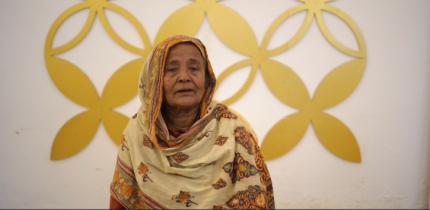
Photo: Collected
Trade sanctions are powerful tools employed by nations to influence the policies and behaviors of other countries. Bangladesh, a densely populated and economically developing nation in South Asia, has faced the repercussions of trade sanctions on several occasions. This essay explores the effects of trade sanctions against Bangladesh and potential strategies to navigate these challenges.
Trade sanctions can significantly impact the economy of Bangladesh. These measures, often imposed for political or human rights reasons, can lead to a decline in international trade, affecting the country's exports and imports. This reduction in trade can harm industries, leading to unemployment and economic instability. Additionally, trade sanctions may contribute to inflation and a decrease in foreign investment, further hampering economic growth. It's crucial for Bangladesh to diversify its trade partners and strengthen domestic industries to mitigate the impact of such sanctions. Over the years, Bangladesh has encountered trade sanctions due to various reasons, including concerns related to labor rights, political instability, and human rights issues. These sanctions, often imposed by influential trading partners or international bodies, aim to coerce Bangladesh into adopting specific reforms or altering its policies.
The imposition of trade sanctions can have profound effects on Bangladesh's economy. One immediate consequence is a decline in international trade, particularly in exports. The textile and garment industry, a major contributor to Bangladesh's economy, often bears the brunt of these sanctions. Reduced export opportunities lead to financial losses, unemployment, and economic strain.
Furthermore, trade sanctions may result in inflation as the cost of imported goods rises. With limited access to certain markets, Bangladesh faces challenges in sourcing essential raw materials, affecting industries across the board. Foreign direct investment may also dwindle as investor confidence wavers in the face of economic uncertainty.
Bangladesh should actively seek to diversify its trade partnerships to reduce dependence on specific countries. By expanding its market reach, the country can better weather the impact of sanctions from any particular trading partner. Strengthening domestic industries is crucial for reducing vulnerability to trade sanctions. Developing self-sufficiency in key sectors ensures a more resilient economy, less susceptible to disruptions caused by external pressures. Addressing the root causes of sanctions, such as labor rights and human rights concerns, can contribute to preventing their imposition. Adhering to international standards and actively working on improving these areas can help build trust with the international community.
Diplomatic efforts play a pivotal role in mitigating the impact of trade sanctions. Bangladesh should engage in open dialogues with concerned nations or international bodies, working towards finding mutually beneficial solutions and addressing the underlying issues that led to sanctions.
Trade sanctions against Bangladesh carry significant economic implications, affecting industries, employment, and overall economic stability. Through strategic measures like diversification of trade partnerships, domestic industry development, adherence to international standards, and diplomatic engagements, Bangladesh can navigate these challenges more effectively. Building a resilient and diversified economy remains crucial in ensuring sustainable growth and mitigating the impact of trade sanctions.
In the face of trade sanctions, the role of the ruling party in Bangladesh becomes paramount in steering the nation through economic challenges and safeguarding its interests on the global stage. This essay delves into the responsibilities and strategies the ruling party must adopt to counteract the adverse effects of sanctions and ensure the resilience of the country's economy.
The ruling party plays a crucial role in formulating policies and making decisions that can mitigate the impact of sanctions. Effective leadership involves assessing the reasons behind the sanctions and developing strategic responses that align with the national interest. Decisions regarding diplomacy, economic reforms, and international relations rest heavily on the ruling party's shoulders. Diplomacy becomes a cornerstone of the ruling party's efforts against sanctions. Engaging in diplomatic dialogues with the nations imposing sanctions and international bodies helps convey Bangladesh's commitment to addressing concerns and finding common ground. Skillful negotiations can lead to the easing or lifting of sanctions, emphasizing the importance of diplomatic acumen on the part of the ruling party.
The ruling party must spearhead efforts to enhance economic resilience and diversify the nation's economic base. This includes investing in industries less susceptible to sanctions, promoting innovation, and encouraging foreign investment in non-sanctioned sectors. Economic policies that foster self-sufficiency can reduce dependence on specific markets and mitigate the impact of trade restrictions.
Maintaining domestic stability is essential for navigating the challenges posed by sanctions. The ruling party must address social and economic disparities to ensure that the burden of sanctions is not disproportionately borne by vulnerable populations. Social cohesion and public support are crucial for weathering economic challenges, and the ruling party plays a central role in fostering unity during testing times.
The ruling party must effectively advocate for Bangladesh's interests on the international stage. Building alliances and garnering support from other nations can amplify the nation's voice against unjust sanctions. Utilizing international forums to highlight the nation's commitment to addressing concerns while emphasizing the negative consequences of sanctions is a diplomatic strategy that the ruling party should employ. The role of the ruling party in Bangladesh against sanctions is multifaceted, requiring strong leadership, diplomatic prowess, and a commitment to national resilience. By making informed decisions, engaging in diplomatic efforts, promoting economic diversification, ensuring domestic stability, and advocating for international support, the ruling party can effectively navigate the challenges posed by sanctions and secure the economic well-being of the nation. In these endeavors, the ruling party's actions play a pivotal role in shaping Bangladesh's response to external pressures and safeguarding its economic interests.
The imposition of trade sanctions on a nation necessitates a comprehensive response from its ruling party. This essay examines the opinions of the opposition and economists regarding the role of the ruling party in Bangladesh when confronted with sanctions, shedding light on diverse perspectives and potential areas of consensus.
The opposition often scrutinizes the ruling party's handling of sanctions, aiming to hold it accountable for economic repercussions. Critics from the opposition may express concerns about the ruling party's effectiveness in diplomacy, suggesting alternative approaches to address the root causes of sanctions. The opposition's role is essential in fostering transparency and ensuring that the ruling party's strategies are in the best interest of the nation.
Economists bring a specialized perspective to the discourse on the ruling party's role against sanctions. Their analyses may focus on the macroeconomic impact of sanctions, assessing potential vulnerabilities and proposing policy recommendations. Economists may advocate for measures such as diversification of the economy, structural reforms, and fiscal policies that can enhance resilience in the face of external economic pressures.
The ruling party's diplomatic efforts are often a focal point of both opposition criticism and economist scrutiny. The opposition may challenge the ruling party's diplomatic strategies, questioning the effectiveness of negotiations and advocating for a more assertive stance. Economists may assess the economic implications of diplomatic decisions, emphasizing the need for a well-calibrated approach that balances national interests and international relations.
Economists frequently emphasize the importance of economic resilience and diversification in mitigating the impact of sanctions. Their opinions may align with or challenge the ruling party's economic policies, particularly in areas such as industrial development, innovation, and foreign investment promotion. Constructive dialogue between economists and policymakers is vital for formulating robust economic strategies.
Both the opposition and economists are likely to scrutinize the ruling party's efforts in maintaining domestic stability during times of sanctions. Social cohesion, welfare policies, and addressing disparities in the impact of sanctions on different segments of the population become key considerations. The opposition may press for inclusive policies, while economists may contribute insights into the economic and social consequences of various strategies.
The role of the ruling party in Bangladesh against sanctions is subject to a spectrum of opinions, with the opposition and economists offering distinct perspectives. Constructive criticism from the opposition serves as a checks-and-balances mechanism, ensuring accountability, while economists contribute specialized insights to enhance economic resilience. Balancing these perspectives is crucial for the ruling party as it navigates the complex terrain of international relations and economic challenges, striving to secure the nation's well-being in the face of sanctions.
Author : Columist and Social Worker

.png)







